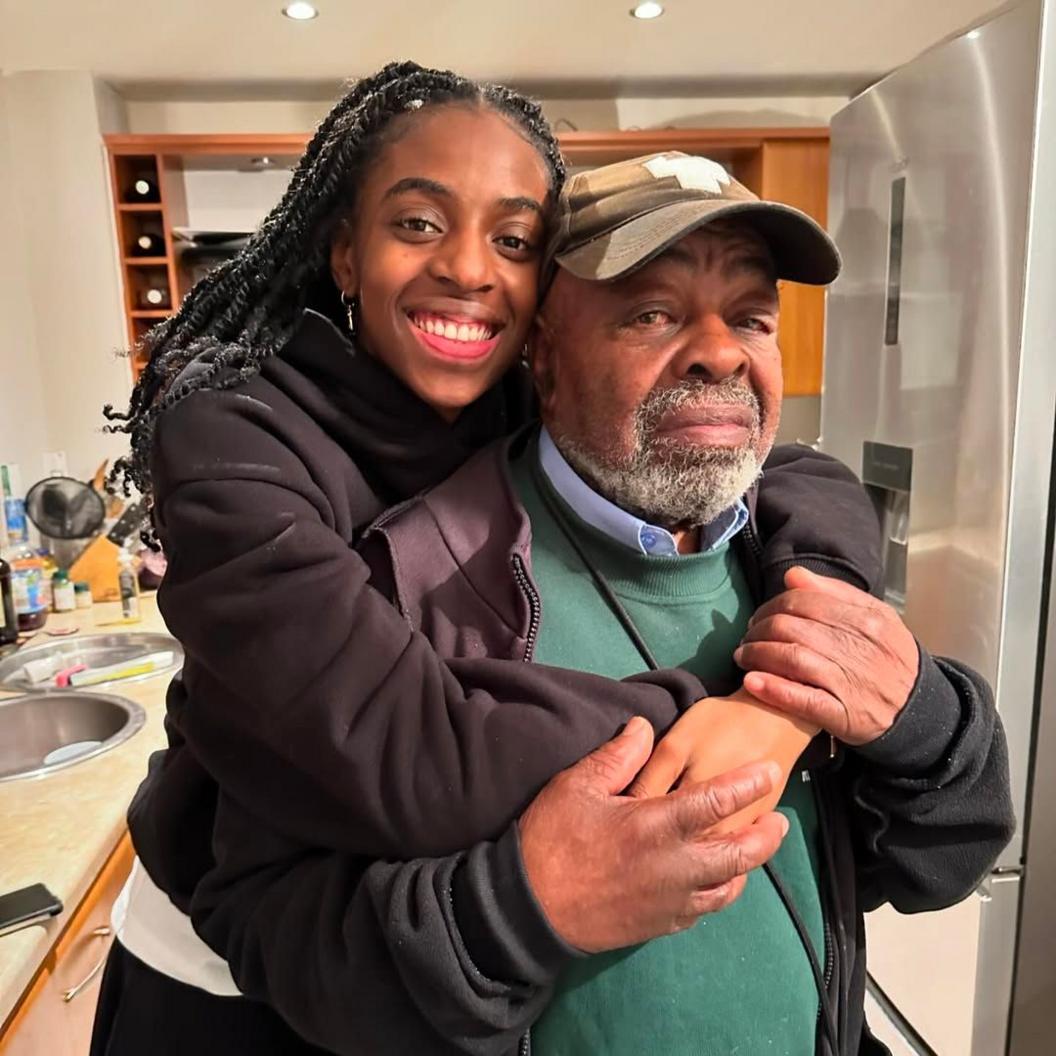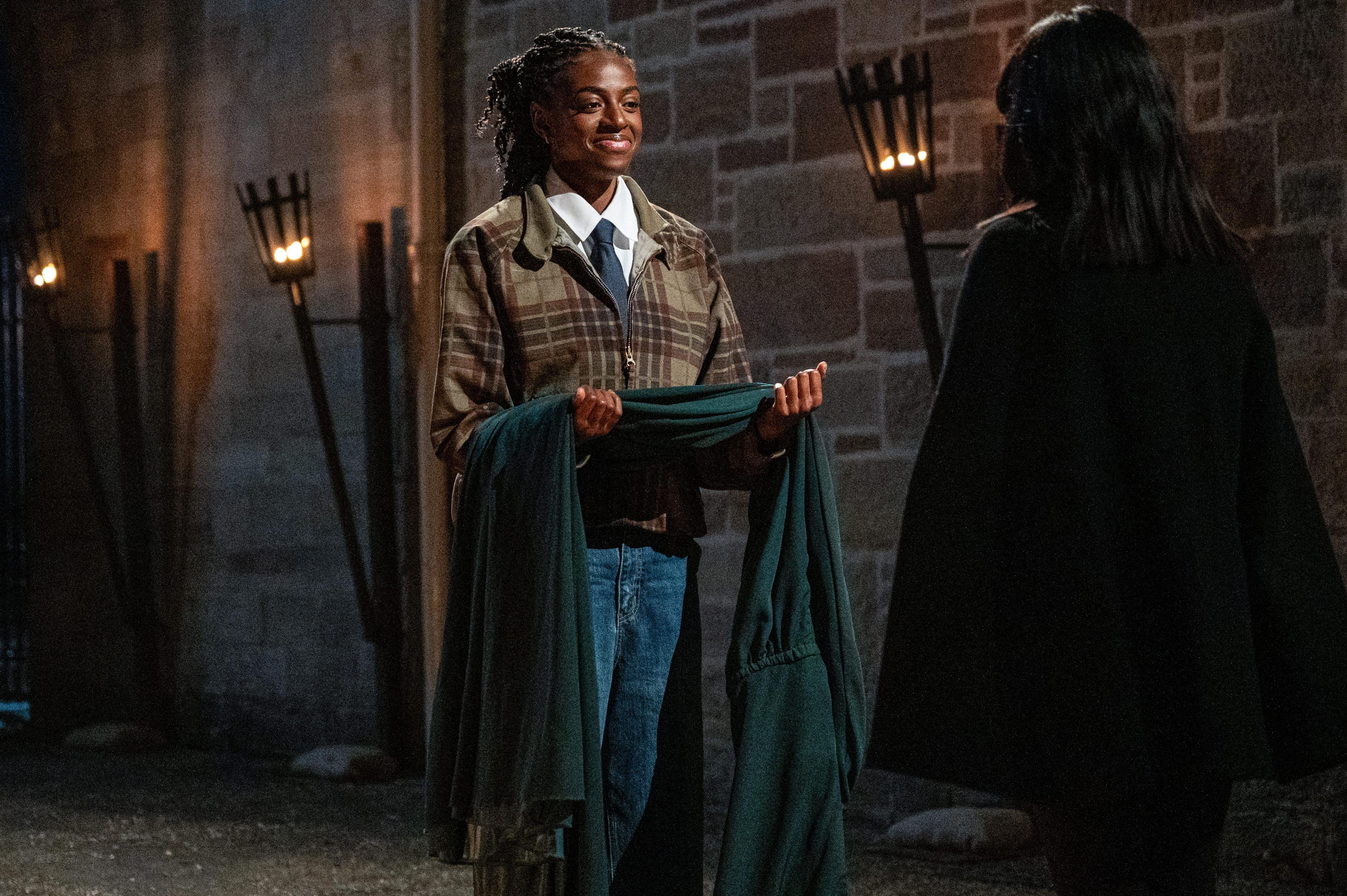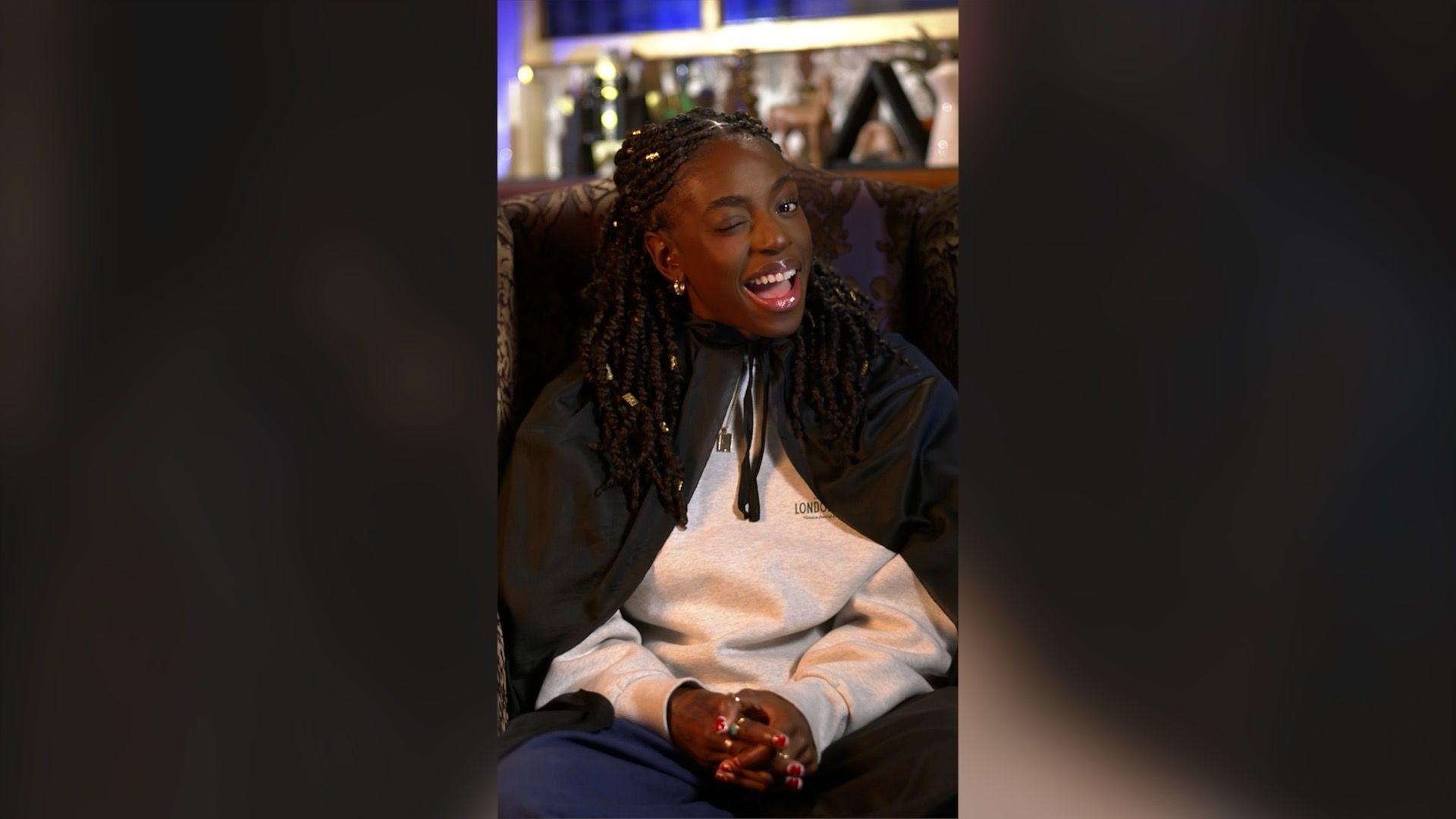Cat Burns' new album shows a softer side to the Traitors star

Cat Burns' second album finds her dealing with heartache, in more ways than one
- Published
If you've been introduced to Cat Burns through Celebrity Traitors, you might assume she's a tough nut to crack.
As a player, she's cautious, cunning, inscrutable. Her cards are firmly clasped to her chest. She's foxier than Fantastic Mr Fox, with as many lives as her name suggests.
People who've heard her music know that's a façade.
Her debut album, Early Twenties, was full of chatty self-interrogation and emotional candour, as Burns described falling in love, coming out to her family, and the social anxiety of her autism and ADHD.
Powered by the breakout single Go, a raw but soulful break-up ballad, it earned the 25-year-old a Mercury Prize nomination for album of the year.
Six months later, she was whisked off to Ardross Castle to become the pot-stirring, strategic mastermind of the Traitors' new spin-off series.
By that point, Burns had largely finished her second album, How To Be Human, so anyone hoping for musical treachery and skullduggery will be disappointed: There are no cash-in covers of Talking Head's Psycho Killer, or Macy Gray's I Committed Murder.
Death, however, lingers over the album like a dense fog, as Burns grapples with the loss of her father on Christmas Day 2020, and her grandfather, John Burns, who passed away last April., external

Cat paid tribute to her grandfather John shortly after his death last year, calling him "my inspiration".
His is the first voice you hear on the album, sending Burns a simple message of love from his hospital bed, over the opening chords of Come Home.
She picks up the narrative, remembering one of their last days together, in a drab Welsh ward room.
"You were laying there with such love in your eyes / Did you know it then or did you think you had more time? / Cause you made us all hold hands."
Tenderly, Burns imagines her grandfather, part of the Windrush generation, being summoned back to heaven by God, the reward for a life well lived.
"You've done everything I could have wanted with the time I gave you... It's time you come home."
It's a stunning piece of writing, specific yet universal, that establishes grief as the overriding theme of Burns' second album.
Andrew Garfield's inspiration
On the itchy, impatient Can Time Move Faster, she daydreams about escaping its grasp. Later, she observes that a break-up is "like grieving someone who's still alive".
Along the way, she drops breadcrumbs for anyone else who's stumbling through loss to follow.
She treats sadness as a stimulus on the gospel-inspired All This Love, determinedly pushing herself back into life.
"I've been going out more / I've been seeing friends on the weekends / Saying yes more," she sings. "And maybe that's thе gift in all of this."
The song, she says, was inspired by watching a video of Spider-Man actor Andrew Garfield discussing his own mother's death.
"He said, 'Grief is love with no place to go', and I was like, 'That's such an amazing way to put it'," she explained in a video, external.
"So when I'm bawling like a complete lunatic, what centres me is remembering this is just the love that I can't [share]. I would like to have a hug, and I would like to have a conversation but I can't."
"That's why I made All This Love, because life keeps going and you have to move with it."

The singer-songwriter won three Brit Award nominations before she'd even released her debut album, Early Twenties
It's one thing to dispense advice, but quite another to follow it, as Burns discovers on a suite of ballads about a disruptive break-up.
Judging by the lyrics, it was an amicable split - which only made letting go harder.
"All we talk about is work and weather… God I hate this / Why are you acting like you haven't seen me naked?" she agonises over the acoustic strum of Small Talk.
Eventually, she realises this can't go on, concluding: "No contact is hard, but better for us in the long term."
Throughout the album, Burns' vocal delivery is almost conversational, making her songs feel like intimate conversations with an older, wiser (and sometimes a little bit messed up) sibling.
Cleverly, the understated production never distracts from the lyrics, with ringing piano chords and gossamer strings that tesselate seamlessly with Burns' soulful melodies.
There are more playful moments, too. The swoonsome groove of GIRLS! soundtracks a celebration of horny feminism; while Lavender is a delirious devotional for a new partner, that you can just tell was sung with a wide-eyed smile.

The winner - or winners - of Celebrity Traitors will be revealed next week
At 16 tracks, the record could have done with a touch of Burns' cut-throat approach to the Traitors.
A few songs that dwell on similar lyrical themes could have been culled; and it would have been thrilling to hear the star's Machiavellian side explored amidst the radio-friendly pop.
But that's a minor quibble. As her fellow contestants have discovered, Burns is a good hang. Even though, as she sings on the percolating title track, her autism means she's often "acting" in ways that she's learned people will expect.
"I wonder if they can tell / That I'm not like them / But I'm trying to be human," she sings.
But if nothing else, the record shows Cat Burns is as human as the rest of us: Anxious, hopeful, downbeat, idealistic, flawed and funny.
Just make sure to watch your back.
Related topics
- Published2 January 2023

- Published28 October

- Published5 March
